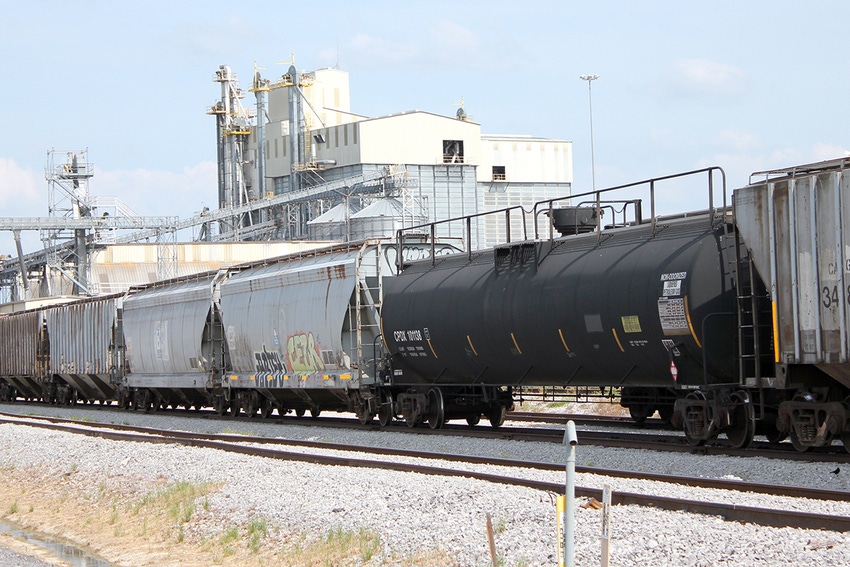
If it was just a matter of economics, negotiating a new trade agreement between the United States, Mexico and Canada might be simple. When you add politics to the equation it becomes a horse of a different color.
That’s one of the answers from Dr. Luis Ribera to a series of questions posed by viewers following his presentation on “Agricultural Trade: China, NAFTA and Brazilian Agriculture in Focus” during a University of Arkansas System Division of Agriculture Webinar.
See also:
Part 1: Trade wars hurt producers, consumers
Part 2: NAFTA has been successful; agreement expected soon
Part 3: China’s response to tariffs hitting soybean farmers hard
Part 4: Could Brazilian soybeans supplant U.S. beans in China?
Ribera, director of the Center for International Studies at Texas A&M University and program director for international projects at its Agricultural and Food Policy Center, said it also doesn’t help that much of the negotiations between the United States and Mexico on redoing the North American Free Trade Agreement or NAFTA is taking place behind closed doors.
“Many times politics carries more weight than economics or economic sense,” he said. “If all the decisions were based on economics we could explain them better. If it’s political, it just depends on what they want to accomplish.”
Other replies by Ribera during the webinar, which can be seen by clicking on https://bit.ly/2MWvZS7, include:
1.On potential for cotton textile industry returning to U.S.
“I don’t think the textile industry will come back. Production costs here are prohibitive. Currently, the U.S. exports 87 percent of our cotton production. We have to have overseas markets”.
2. On NAFTA and China trade issues.
“The Trump administration is asking if we got the best deal we could get. They are not sure that we did.”
Administration officials have been saying the U.S. has the largest economy in the world, he noted. “That should be our bargaining power, our way to get the best deal.”
3. On creating trade agreements with individual countries.
“It’s not practical to do trade agreements with every country we want to trade with. There are too many countries.”
4. On the impact of tariffs to U.S. consumers and agriculture.
“Having a trade war is not the way to go for producers or consumers. Discussion of the issues is preferred to find agreements.”
Ribera said governments can retaliate, which basically what is happening now, “but I don’t think that is a solution because consumers are the ones that pay the price. In a trade war, nobody wins — certainly not consumers and producers.”
What he would like to see happen, he said, is for both sides to sit down and figure things out. That is, to reduce tariffs and let the world’s economies compete.”
5. What about China’s theft of intellectual property?
“The main issue in trade negotiations is to make sure China plays fair. They need to stop stealing intellectual property.” He acknowledged that some companies continue to comply because even with China’s theft they still make a profit
6. How does Brazil fit into the trade equation?
“Brazil is a major player. They can double cropland above the more than 70 million hectares now in production. They can double without cutting down a tree by becoming more efficient, especially with pastureland. Soybean yields are about the same as U.S. producers. Corn is less because it’s double-cropped behind soybeans.
“Brazil still has a lot of infrastructure issues. Roads are not well maintained. A lot of soybeans (3 percent to 7 percent) are lost out of trucks on bad roads. Brazil needs railroads into the interior. They also want to use the Amazon River to move grain by water transfer as we use the Mississippi.”
7. Argentina
A high tariff, 28.5 percent on soybeans, hurts Argentina in the marketplace,” Ribera said. “You can call it positive for the U.S. to be able to maintain more of its market share overseas. It’s bad because the currency crisis is hampering their efforts to repay the International Monetary Fund.”
Ribera said the new president of Argentina campaigned on removing the 28.5 percent tariff on soybean exports, but, after he went into office, the IMF told him he couldn’t. “It’s a big source of income for the government, but a huge burden on producers.
8. On the future of the World Trade Organization
He said he thinks countries will become more dependent on bilateral or regional agreements. “The WTO will be there to set the bar, to put a ceiling on tariffs and subsidies,” he said. “Then you depend on countries to try to get better deals among each other.”
9. On his recommendation on market strategy.
“We don’t make recommendations. We just analyze the issues.”
About the Author(s)
You May Also Like








